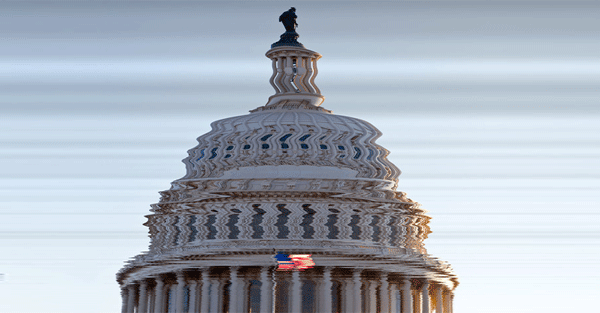Though opposed to Lincoln’s violations of the Constitution in his war against the American South, Northern Democrats saw the need to crush secession, which was a manifestation of the Tenth Amendment and inherent right of the people of a State to withdraw from a federal compact to which they conditionally assented. Those Northern Democrats did not see that due to the vast differences between the sections by 1861, peaceful separation was the only logical solution for the Southern people to pursue free, representative government. Connecticut Senator William C. Fowler (below) was born in 1793, during Washington’s presidency – living long enough to see the end of Washington’s Union.
Bernhard Thuersam, www.Circa1865.org The Great American Political Divide
“Thou Wicked Servant”
“Expressing opposition to secession, [Northerners Clement] Vallandigham, [Samuel S.] Cox, [Stephen D.] Carpenter, and Fowler maintained that they desired not an independent Confederacy but simply a restoration of the “Constitution as it is” and the “Union as it was.” They declared they were in favor of a constitutional war to crush secession, but they charged that Lincoln was waging a battle for the conquest and subjugation of the South and that he was conducting it in a despotic fashion, subverting the constitutional liberties of individuals and the rights of States.
Opposing military conscription, they also criticized the suspension of the writ of habeas corpus and declared that freedom of speech had been abolished in the Union.
In particular, they attacked Lincoln’s policy of emancipation. Spurning the argument that emancipation was a legitimate measure adopted to aid the prosecution of the war, they pictured it as an unconstitutional act by which the President had changed the war aims of the North from the preservation of the Union to abolition of slavery.
“If,” said Fowler in the Connecticut State Senate in 1864, “the President should avow the fact that he has violated the Constitution, in order to save the Union, as the President did in a letter to Mr. Hodge, let us say to him “out of thine own mouth will I judge thee, thou wicked servant.”
The peace advocates placed special blame for war upon the abolitionists of the North, stating repeatedly that it was not the institution of slavery but the agitation of the slavery question by the abolitionists that had caused hostilities.
For the immediate outbreak of fighting, the three Midwesterners placed responsibility upon Lincoln and the Republicans because of their refusal to compromise with Southerners in the crisis of 1860-1861.”
(Americans Interpret Their Civil War, Thomas J. Pressly, 1954, Princeton University Press, excerpts pp. 131-133)






